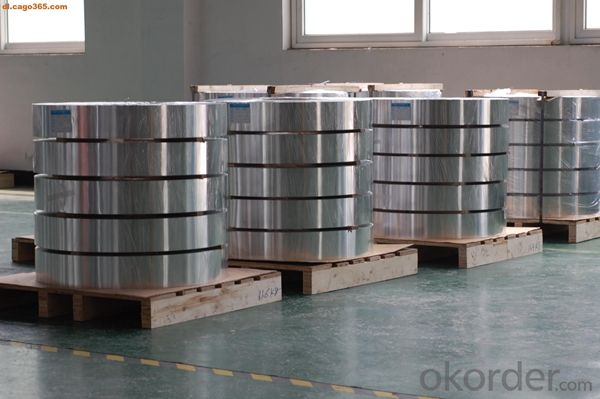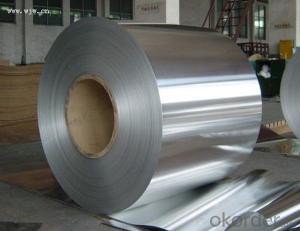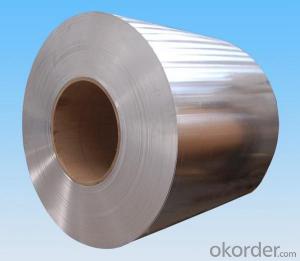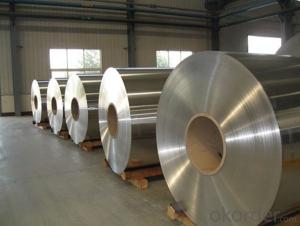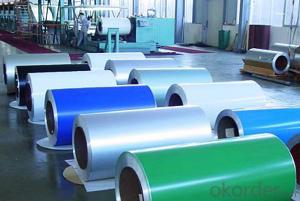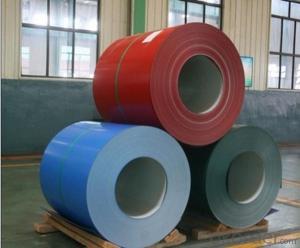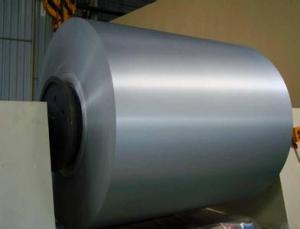Color Coated Aluminum Coil Custom Mill Finished Aluminium Coil AA1100 for Building
- Loading Port:
- Shanghai
- Payment Terms:
- TT OR LC
- Min Order Qty:
- 5 m.t.
- Supply Capability:
- 10000 m.t./month
OKorder Service Pledge
OKorder Financial Service
You Might Also Like
Specification
1. Specification of Mill Finished Aluminium Coil AA1100 for Building
characteristics | Application |
1) Super peeling strength | 1) Building exterior curtain walls |
2) Excellent surface flatness and smoothness | 2) Decoration and renovation additions for old buildings |
3) Superior weather, corrosion, pollutant resistance | 3) Decoration of interior walls, ceilings, bathrooms, kitchens and balconies |
4) Even coating, various colors | 4) Shop door decorations |
5) Fireproof, excellent heat and sound insulation | 5) Advertisement board display platforms and signboards |
6) Superior impact resistance | 6) Wallboards and ceilings for tunnels |
7) Lightweight and easy to process | 7) Industrial materials, materials for vehicles and boats |
2. Application of Mill Finished Aluminium Coil AA1100 for Building
(1).Interior: wall cladding, ceilings, bathrooms, kitchens and balconies, shutters, doors...
(2).Exterior: wall cladding, facades, roofing, canopies, tunnels, column covers , renovations...
(3).Advertisement: display platforms, signboards, fascia, shop fronts...
3. Feature of Mill Finished Aluminium Coil AA1100 for Building
• Our goods quality is top, the surface is smooth, and every steel coil
• No Joint, No Bends, no spots, no roller marks.
• MTC will be provided with goods, third part inspection is acceptable, for example, SGS, BV. Etc
Be free from Oil Stain, Dent, Inclusion, Scratches, Stain, Oxide Dicoloration, Breaks, Corrosion, Roll Marks, Dirt Streaks and other defect which will interfere with use
4. Certificate:
SGS and ROHS(if client request, paid by client), MTC(plant provided), Certificate of Origin(FORM A, FORM E, CO), Bureau Veritas and SGS (if client request, paid by client), CIQS certificate
5. Image of Mill Finished Aluminium Coil AA1100 for Building
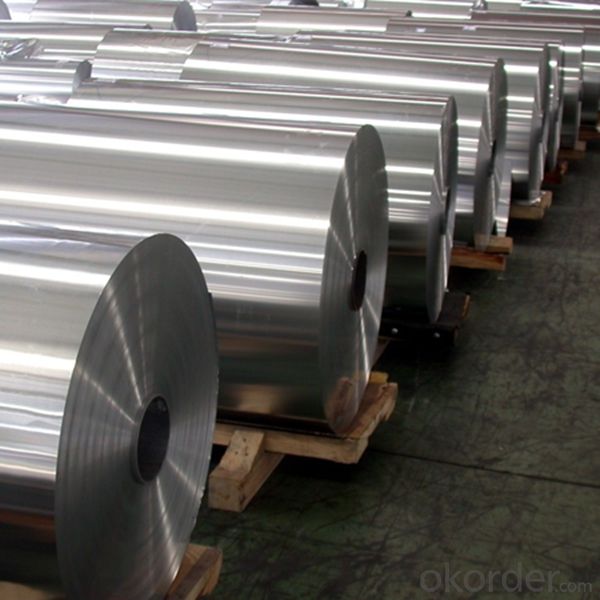
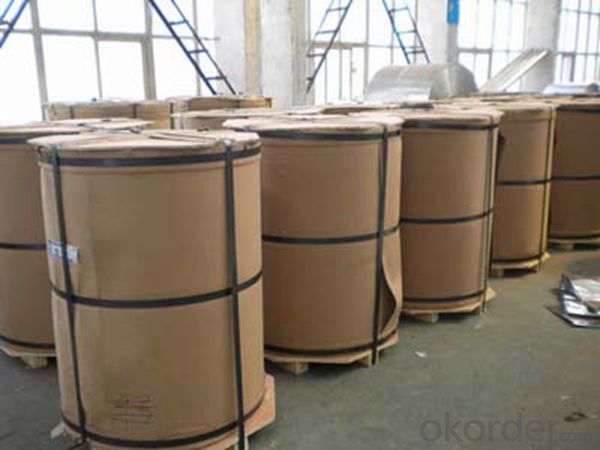
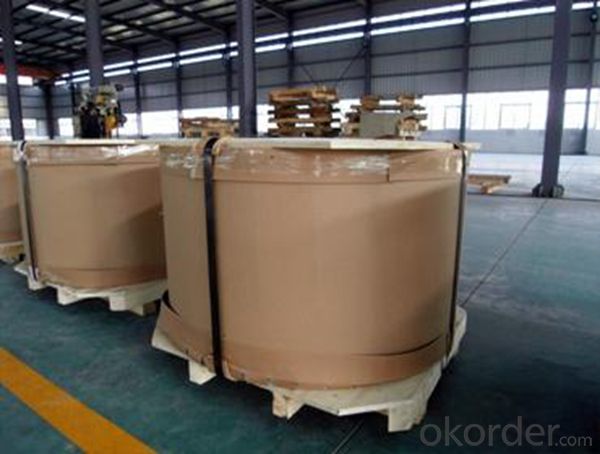
6. Package and shipping of Mill Finished Aluminium Coil AA1100 for Building
eye to wall
eye to the wall
with wood pallet (wooded case also available)
7. FAQ
1) What is the delivery time?
Dpends on actual order, around 20 to 35 days
2)What is the QC system:
We have QC staff of 20 persons and advanced equipment, each production is with MTC traced from Aluminum ingot lot.
3) What market do you mainly sell to?
Australia, America, Asia, Middle East, Western Europe, Africa etc
- Q: What are the unique considerations or safety measures to be aware of when using aluminum wire in welding?
- <p>When using aluminum wire in a welding process, special precautions include ensuring proper ventilation to avoid inhaling aluminum fumes, which can be harmful. Use the correct polarity and amperage settings on your welding machine, as aluminum requires direct current electrode negative (DCEN) for most processes. Clean the aluminum surface thoroughly to remove any oxides or contaminants that can affect the weld quality. Protect the aluminum from atmospheric contamination with a shielding gas, typically argon or a mixture, during the welding process. Be cautious of the high thermal conductivity of aluminum, which can lead to faster heat dissipation and may require adjustments in welding technique or parameters.</p>
- Q: How are aluminum coils processed to achieve desired mechanical properties?
- Various techniques are employed to process aluminum coils in order to attain the desired mechanical properties. One method commonly utilized is known as annealing, wherein the coils are heated to a specific temperature and then gradually cooled. This particular process aids in reducing internal stresses and enhancing the metal's ductility and toughness. Another significant procedure is cold rolling, whereby the coils are passed through a series of rollers at room temperature to decrease their thickness and improve their mechanical properties. Not only does this technique bolster the aluminum's strength, but it also enhances its surface finish. To further augment the mechanical properties, aluminum coils can also undergo alloying. This involves blending the aluminum with other elements such as copper, manganese, or magnesium to form specific alloys. These alloys provide superior strength, corrosion resistance, and other desirable properties. Furthermore, heat treatments like precipitation hardening can be applied to aluminum coils. This process necessitates heating the coils to a specific temperature and maintaining them at that level for a certain duration, followed by rapid cooling. Precipitation hardening enables the formation of fine particles in the metal's microstructure, thereby increasing its strength and hardness. Lastly, surface treatments like anodizing or painting can be employed on aluminum coils to enhance their mechanical properties. Anodizing creates a protective oxide layer on the surface, improving corrosion resistance, while painting offers additional protection and aesthetic appeal. In conclusion, aluminum coils are subjected to various techniques including annealing, cold rolling, alloying, heat treatments, and surface treatments to achieve the desired mechanical properties. These processes serve to enhance the aluminum's strength, ductility, toughness, and corrosion resistance, rendering it suitable for a wide array of applications.
- Q: What is the typical hardness of aluminum coils?
- The hardness of aluminum coils can vary depending on different factors, such as the composition of the alloy, the process of tempering, and the intended use. Manufacturers produce aluminum coils with different levels of hardness to meet various needs and requirements. Aluminum coils are available in different tempers, including soft, half-hard, and full-hard. Soft aluminum coils have low hardness and are highly malleable, making them suitable for applications that require easy shaping, such as packaging and wrapping materials. Half-hard aluminum coils are moderately hardened and offer a balance between formability and strength, making them suitable for applications like roofing and siding. Full-hard aluminum coils have the highest hardness and provide excellent strength, making them ideal for applications that require structural integrity, such as automotive parts and construction materials. To determine the specific hardness of aluminum coils, various testing methods can be used, such as Rockwell hardness, Vickers hardness, or Brinell hardness. These tests measure the resistance of the aluminum surface to indentation and provide a numerical value indicating the material's hardness. However, it is important to consult the manufacturer or supplier for the specific hardness values, as they can vary depending on the specific alloy and temper of the aluminum coil.
- Q: Is it possible to use aluminum coils as a material for crafting jewelry?
- <p>Yes, aluminum coils can be used to make jewelry. Aluminum is a lightweight, durable, and affordable metal that is often used in costume jewelry and art pieces. It's easy to work with, allowing for intricate designs and shapes. However, it's important to note that aluminum is not as valuable or as resistant to tarnishing as precious metals like gold or silver, so it may not be suitable for high-end or long-lasting jewelry pieces.</p>
- Q: What are the different coil leveling options available for aluminum coils?
- Aluminum coils can be leveled using various methods, depending on the specific needs of the application. These options include roller leveling, stretch leveling, tension leveling, and precision leveling. Roller leveling is a commonly used technique that involves passing the coil through a series of rollers. These rollers apply pressure to gradually reduce the thickness of the material and correct any imperfections. This method is efficient and can accommodate different coil sizes and thicknesses. Stretch leveling, on the other hand, involves controlled stretching of the aluminum coil. Powered rollers elongate the material, removing residual stress and improving flatness. This method is particularly effective for thicker and wider coils. Tension leveling utilizes tension to eliminate waviness or unevenness in the coil. The material is passed through bridle rolls that apply tension, resulting in a flattened coil. This technique is commonly used for thinner gauges of aluminum and allows for high-speed processing. For high-precision applications, precision leveling is recommended. This specialized process combines roller leveling, stretching, and tensioning techniques to achieve extremely flat and uniform coils. Industries such as aerospace, automotive, and electronics often rely on precision leveling. Overall, the choice of leveling method for aluminum coils depends on factors like desired flatness, thickness, width, and application requirements. Each technique has its own advantages and limitations, so it is crucial to select the most suitable option to ensure the production of high-quality end products.
- Q: This question asks about potential safety hazards when using electric heaters that have aluminum coils.
- <p>While electric heaters with aluminum coils are generally safe when used properly, there are some safety concerns to consider. Aluminum can heat up quickly and may become very hot, posing a risk of burns if touched. Additionally, aluminum coils can corrode over time, potentially leading to electrical shorts or fires. It's important to ensure that the heater is not covered or obstructed, as this can cause overheating. Always follow the manufacturer's instructions for use and safety precautions. Regularly inspect the heater for any signs of damage or wear, and never use a heater with a damaged cord or plug.</p>
- Q: How are aluminum coils inspected for quality control?
- Aluminum coils are inspected for quality control through a combination of visual inspections and various non-destructive testing methods. These measures ensure that the coils meet the required specifications and are free from any defects or flaws. Visual inspections involve trained personnel carefully examining the coils for surface defects such as scratches, dents, or any irregularities in shape or size. The inspectors also check for any signs of contamination, oxidation, or discoloration. Any abnormalities detected during this visual inspection are noted and addressed accordingly. In addition to visual inspections, non-destructive testing techniques are employed to evaluate the internal quality of the aluminum coils. One commonly used method is ultrasonic testing, where high-frequency sound waves are transmitted through the coils. The reflected sound waves are analyzed to identify any internal defects like voids, cracks, or delaminations. This technique allows for a thorough assessment of the coil's integrity without causing any damage to the material. Another non-destructive testing method used for quality control is eddy current testing. This technique involves inducing electrical currents in the coils and measuring the resulting magnetic fields. Any variations in the magnetic fields can indicate flaws or defects in the aluminum, such as cracks or inclusions. Eddy current testing is particularly effective in detecting surface defects and discontinuities. Furthermore, measurements of important physical properties like thickness, width, and flatness are taken to ensure they meet the required standards. This is typically done using specialized instruments such as micrometers, calipers, or laser scanners. Overall, the inspection of aluminum coils for quality control involves a combination of visual inspections and non-destructive testing techniques to ensure that the coils are free from defects, meet the required specifications, and are of high quality.
- Q: Are aluminum coils suitable for roofing?
- Yes, aluminum coils are indeed suitable for roofing. Aluminum is a highly durable and lightweight material that has been widely used in the construction industry for roofing purposes. It offers numerous benefits such as being resistant to rust, corrosion, and fire, making it an ideal choice for areas with harsh weather conditions or high humidity. Aluminum coils are also known for their excellent thermal conductivity, which helps in reflecting sunlight and reducing energy consumption, leading to lower cooling costs. Additionally, aluminum roofing is easy to install and maintain, providing long-lasting protection for residential, commercial, and industrial buildings.
- Q: I go on a trip once a year with a group of lets say 10 people, we go for 7 nights and consume on average approx 120 cans of beer each (throughout the week). We have a fire burning the whole time in a hole that we dig approx 1ft deep, then we dispose of each can in the fire and let them melt down never thinking about them again. That's approx 1,200 cans that melt in the one fire hole.Will the aluminum have an affect on the soil? does anyone know what sort of damage this can cause? and for what distance / area around the fire might be affected?The theory amongst the group is that cans do not hurt anything so that's why they take cans instead of glass.Thanks
- Aluminum is very reactive in air and will form a layer of aluminum oxide around the outside of any piece. This oxide layer is very stable which is why aluminum doesn't corrode. Since your block of aluminum will be totally oxidized being in a fire, it's inert and just going to sit in the hole for the foreseeable future. The burning paint might not be healthy to breath but that's about the only hazard. Most common soil is a mixture of aluminum, carbon and silica compounds anyways so you aren't even adding anything particularly exotic. Alternatively, you could bring along a couple fifths of whiskey. It's lighter and has less packaging so it's the environmentally friendly way to get drunk.
- Q: What are the applications of aluminum coils?
- Aluminum coils have a variety of applications across industries. They are commonly used in the manufacture of HVAC systems, where they serve as heat exchanger components. Aluminum coils are also widely used in the construction sector for roofing, cladding, and insulation purposes. Additionally, they find application in the automotive industry for radiators, condensers, and evaporators. The electrical and electronic sectors utilize aluminum coils in transformers, motors, and power cables. Moreover, aluminum coils are employed in the packaging industry for making cans, foils, and closures.
Send your message to us
Color Coated Aluminum Coil Custom Mill Finished Aluminium Coil AA1100 for Building
- Loading Port:
- Shanghai
- Payment Terms:
- TT OR LC
- Min Order Qty:
- 5 m.t.
- Supply Capability:
- 10000 m.t./month
OKorder Service Pledge
OKorder Financial Service
Similar products
Hot products
Hot Searches
Related keywords


